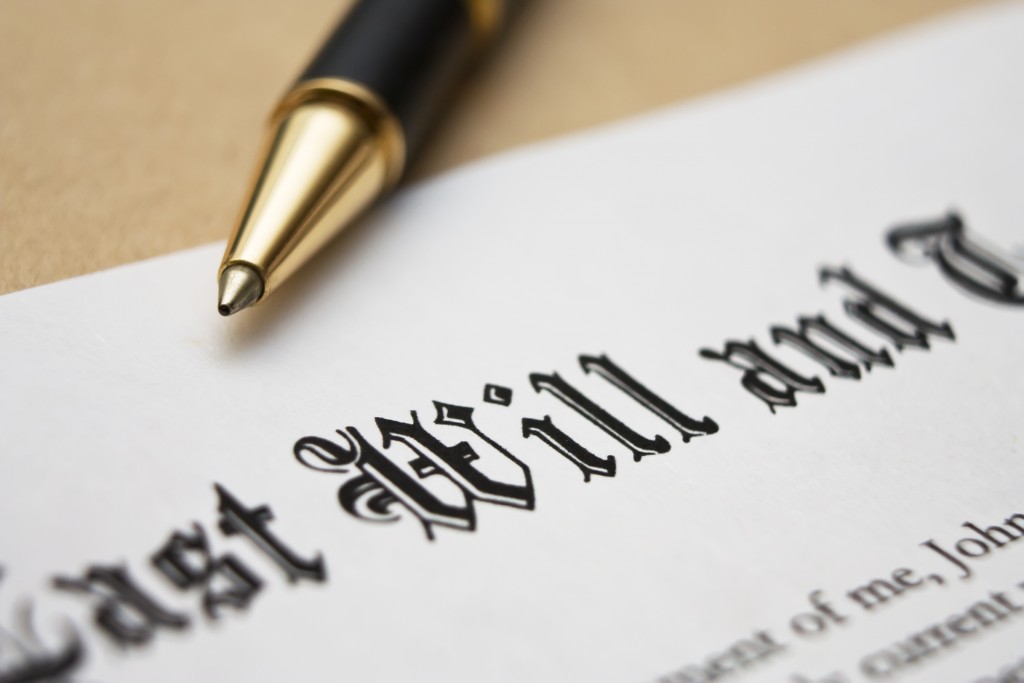An executor is the person appointed in a will to administer the estate of a deceased person. He/she is entitled to take out a grant of probate to the estate of the deceased.
An administrator (administratix if female) extracts a grant in an intestate situation or in a testate situation where the executor has died.
Both executors and administrators are known as ‘legal personal representatives’.
Once a person undertakes the role of personal representative of an estate his/her role as a personal representative never ceases.
Who Can Be an Executor?
Pretty much anyone, provided they are not under a disability, and this includes a beneficiary can be an executor.
A professional such as an accountant or solicitor can also act as an executor. However an executor is not entitled to be paid for his services as of right so there should have been a charging clause inserted in the will.
An executor can be appointed expressly in the will or “according to tenor”-this derives from the tenor of the will and the functions assigned to them in the will.
There is no limit on the number of executors that can be appointed but no grant of administration shall be granted to more than 3 persons unless the Probate Officer otherwise directs.
An executor does not have to act; he can accept, reserve or renounce the executorship.
The Courts have decided that only in very serious cases will it order the removal of an executor.
The Role of an Executor
An executor’s job is to extract a grant of probate to the estate of the deceased and to administer the deceased’s estate.
The powers and duties of the executor date from the date of death of the deceased with the whole estate devolving to the executor.
An executor does not have to act and may renounce but once he/she takes on the role, he/she cannot renounce at a later date.
The Duties of an Executor
The first duty of an executor is to dispose of the body of the deceased. In practice, this will probably have been done by the deceased’s family.
The executor then needs to ascertain the precise value of the assets of the estate and protect them. This will involve ensuring that insurance is in place, where appropriate.
The executor must also ascertain all the liabilities of the estate such as taxes, outstanding claims, and outstanding debts. He/she must also ascertain all of the beneficiaries of the estate and check into prior gifts/inheritances that they may have received.
Then, the executor must prepare and swear an Inland Revenue affidavit which will list all assets and liabilities of the estate.
The executor then must lodge all the relevant documents in the Probate Office and extract a Grant of Probate. Once the Grant issues, he will gather in all the assets and dispose of those not being given to beneficiaries.
The executor must also pay all of the debts and expenses of the estate and distribute the assets, making sure that all taxes are paid. These taxes will include taxes due by the deceased prior to his death, all taxes arising out of the administration of the estate itself, and any inheritance taxes and capital gains taxes arising from distribution of assets.
Lastly, the executor must prepare an administration account where he accounts for all monies received and disbursed during the administration period.
Note:
- an executor cannot delegate his authority but may engage the services of other people to help him, eg experts such as a solicitor, accountant, taxation specialist, auctioneer to value property etc.
- an executor is not entitled to be paid for carrying out his duty but he is entitled to recover expenses incurred by him in the carrying out of his duty
- there is no obligation on the executor to give a copy of the will to anyone before it is admitted to probate, nor to inform a beneficiary of his interest
- the duties of a personal representative are for life
- there is no limit on the number of executors that can be appointed
- an executor can be appointed in a will or by implication, ie according to tenor (eg no executor is appointed in the will but someone is given the function of discharging the debts of the deceased).
The Powers of an Executor
An executor is given wide ranging powers by statute (the Succession Act, 1965) and by the will itself.
The statutory powers include:
- the power to sell all or any part of the estate to pay debts and to distribute the estate among the persons entitled
- the power to act as a trustee for the purposes of the Settled Land Acts
- the power to appropriate any part of the estate towards satisfaction of any share in the estate (subject to the provisions of section 55 of the Succession Act, 1965)
- the power to appoint trustees for an infant beneficiary
- the power to lease property for the administration of the estate
- the power to mortgage
- the power to settle claims and disputes.
Powers typically granted in a will include
- the power to appropriate without serving any notices or consents
- the power to invest or purchase authorised securities
- the power to employ agents/managers.
Executor, Guardian, and Trustee-What’s the Difference?
The role and duties of the executor have been set out above.
A trustee’s job is to carry out the wishes of the settlor as indicated in the trust.
The guardian’s role is to act in loco parentis to the child for whom he is appointed guardian.
If you are a personal representative, you would be well advised to seek the advice of a solicitor who can help advise you on all matters relating to the administration of the estate and who will explain fully all the declarations and documents that you will be required to sign.
By Terry Gorry
